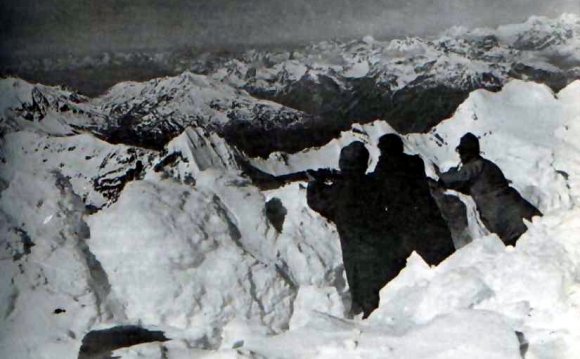
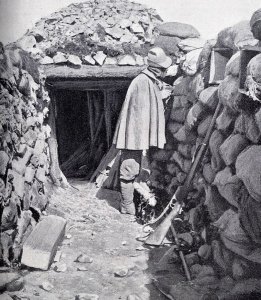
One Hundred Years of Remembrance
An Italian Trench on the Eastern Front (Corriere della Sera, November 1915)On May 24 2015, Italy celebrated the 100th anniversary of its entry into World War One. Many, even if aware of its bloodiness and of the tragedy it brought to the entire world, fail to understand its true magnitude: we are, often, more aware of how horrific, how unconceivably violent World War Two was, yet we seem not to perceive World War One's horror with the same intensity.
Truth is, World War One was, if differently, just as tragic. It changed, destroyed, ripped apart the lives of millions, just as World War Two did. It is important, it is almost a duty, in many a sense, not to forget it, especially now: none of the men who fought it are still alive, none of those who lived and witnessed the fear and tragedy of it can tell their stories.
However, their experience and their tales can still be passed on by us, remembered and kept actual.
When you are in Primary and Middle school in Italy, you are often asked to learn famous poems by heart. One of them is San Martino del Carso, by hermetist poet Giuseppe Ungaretti, who fought in the trenches as a teenager. This is his memory of war, of what it left within him.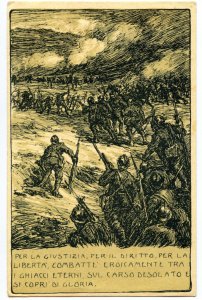 In their simplicity, Ungaretti's words became the symbol of Italy's effort in the Great War and, more even than that, of the trail of loss, turmoil and pain its events left within the people who fought it:
In their simplicity, Ungaretti's words became the symbol of Italy's effort in the Great War and, more even than that, of the trail of loss, turmoil and pain its events left within the people who fought it:
Of these houses
nothing remains
but some
walls in rubble.
Of the many
who were closed to me
very little
remains.
But in my heart
not one cross is missing.
It is my heart,
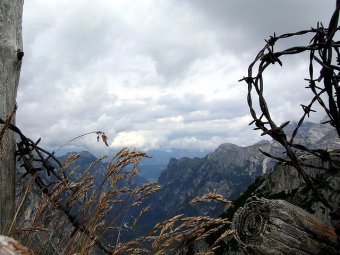 the most ravaged of all villages.
the most ravaged of all villages.
The history of World War One
The period from 1915 to 1940 in Italy is tied, directly and indirectly, to the events of the First World War and its consequences, which were to lead to the Second World War.
The Italian effort in the first world conflict is strongly associated to the Eastern Front, which ran through the Dolomites, where the armies of Italy and Austria-Hungary faced each other from 1915 to 1918.
In 1882, Italy had joined the Triple Alliance, along with the Empires of central Europe (namely Prussia and the Habsburg's Empire) in hope of getting a few territories including Dalmatia, Trieste and Istria. In 1914, when the conflict started, Italy was still nominally allied with the Alliance. However, when the country finally decided to enter the war actively, it sided with their opponents, France and Britain, which had promised territorial acquisitions to the Italian king, Vittorio Emanuele III, in case of victory.
Even though Italy had initially hoped to launch a surprise attack to capture many cities in Austria, these hopes were quickly dashed. In the end, the country had to resort to trench warfare, as it was common already on the Western Front.
RELATED VIDEO
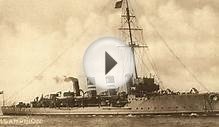



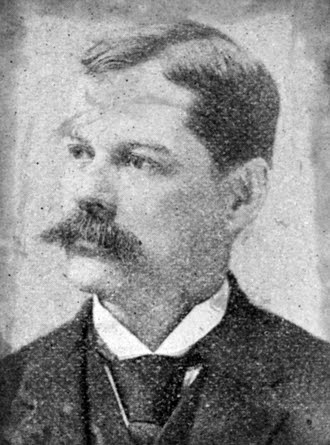 Thomas Nelson Page (April 23, 1853 – November 1, 1922) was a lawyer and American writer. He also served as the U.S. ambassador to Italy during the administration of President Woodrow Wilson, including the important period of World War I.
Thomas Nelson Page (April 23, 1853 – November 1, 1922) was a lawyer and American writer. He also served as the U.S. ambassador to Italy during the administration of President Woodrow Wilson, including the important period of World War I.







